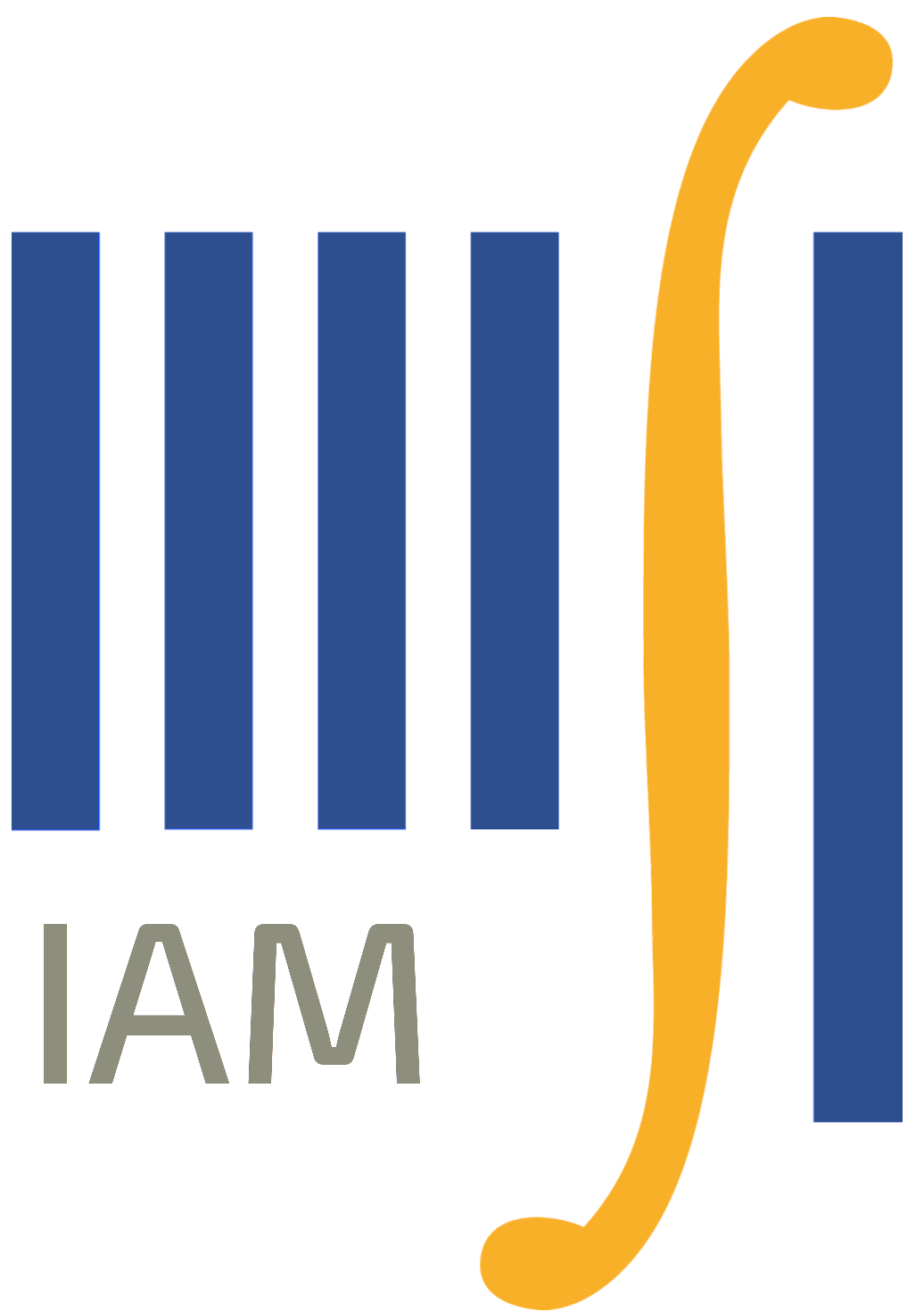Summer semester 2024
Below, you find the list of seminar talks we had in the summer semester 2024.
In this semester, we mainly had students and internal speakers with some external guests.
Calendar
- 12.04.2024: Preliminary organizational meeting
- 19.04.2024: Camillo Tissot
Comparing lower scaling estimates for different surface penalizations
Abstract: In this talk we compare lower scaling estimates for a sharp and diffuse interface penalization of a double-well elastic energy.
The results presented in this talk are based on [B. Zwicknagl, ARMA 2014].
- 26.04.2024: Hendrik Baers
Instability of the Fractional Calderón Problem
Abstract: The Calderón Problem is one of the classic examples of an inverse problem. It is about determining the conductivity of a medium by making voltage and current measurements on its boundary. We consider the fractional formulation of the problem and prove exponential instability.
- 03.05.2024: Lena Siemer
Sets of finite perimeter and the Direct Method
Note1: the results presented in this talk come from Chapter 12 of the book "Sets of Finite Perimeter and Geometric Variational Problems" by Francesco Maggi (2012)
Note2: this talk takes place in room N 0.007 (Neubau), due to the unavailability of the usual room
- 10.05.2024: Friederike Schmid
The influence of surface energy on stress-free microstructures in shape memory alloys
Note: the results presented in this talk come from the homonymous paper from Georg Dolzmann and Stefan Müller (1995)
- 17.05.2024: Oskar Engelfried
Energy scaling law for a singularly perturbed four-gradient problem in helimagnets to martensites
Note: the results presented in this talk come from the homonymous paper from Janusz Ginster and Barbara Zwicknagl (2023)
- 31.05.2024: Linus Engelfried
On scaling laws for multi-well nucleation problems without gauge invariances
Note: the results presented in this talk come from the homonymous paper from Angkana Rüland and Antonio Tribuzio (2023)
- 07.06.2024: Xiaopeng Cheng
Uniform energy distribution for an isoperimetric problem with long-range interactions
Note: the results presented in this talk come from the homonymous paper from Giovanni Alberti, Rustum Choksi, and Felix Otto (2009)
- 14.06.2024: Leon Hamann
Asymptotic shape of isolated magnetic domains
Note: the results presented in this talk come from the homonymous paper from Hans Knüpfer and Dominik Stantejsky (2022)
- 21.06.2024: Amavin Pasindu Pereira
On an isoperimetric problem with a competing nonlocal term I: The planar case
Note: the results presented in this talk come from the homonymous paper from Hans Knüpfer and Cyrill Muratov (2013)
- 05.07.2024: Michel Alexis
How to represent a function in a quantum computer?
Abstract: Quantum Signal Processing (QSP) is a process by which one represents a signal $f: [0,1] \to [-1,1]$ as the imaginary part of the upper left entry of a product of $SU(2)$ matrices parametrized by the input variable $x \in [0,1]$ and some ``phase factors'' $\{\psi_k\}_{k \geq 0}$ depending on $f$. QSP was well-understood for polynomial signals $f$, but not for arbitrary signals $f :[0,1] \to (-1,1)$. Our recent work addresses more general classes of signals by using the $L^2$ theory of nonlinear Fourier analysis. Namely, after a change of variables, QSP is actually the $SU(2)$ model of the nonlinear Fourier transform, and the phase factors $\{\psi_k\}_k$ correspond to the nonlinear Fourier coefficients. Then, by exploiting a nonlinear Plancherel identity and a contraction mapping, we will show that QSP can be extended to all signals $f$ bounded in absolute value by $\frac{1}{\sqrt{2}}$. This is joint work with Gevorg Mnatsakanyan and Christoph Thiele.
Note: this will be a joint appointment with the groups of Quantum Signal Processing and Harmonic Analysis
- 12.07.2024: Linus Elias Münch
T5-Configurations and non-rigid sets of matrices
Note: the results presented in this talk come from the homonymous paper from Clemens Förster and László Székelyhidi (2017)


